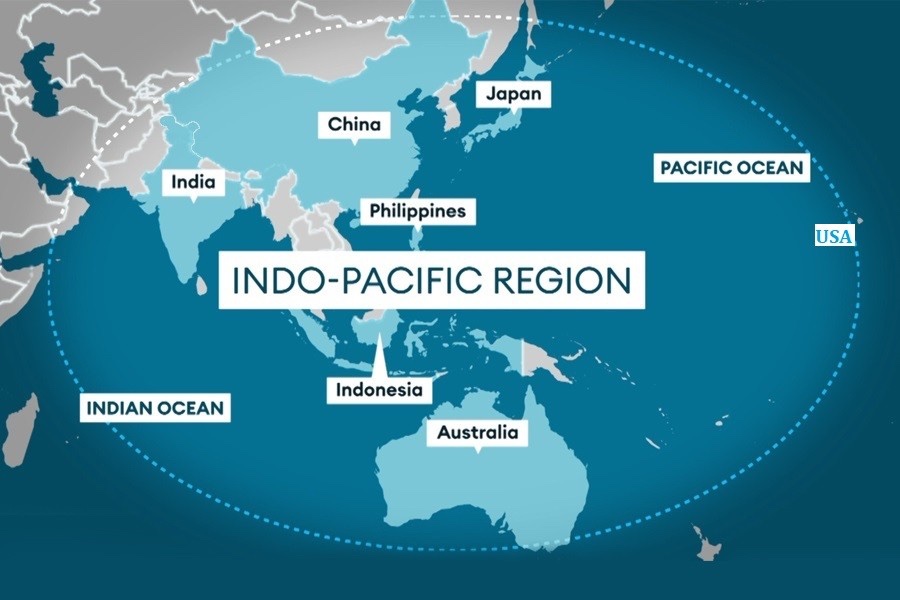A landmark visit to North Korea has revived Indonesia-Pyongyang ties and raised questions about Jakarta's long-term strategy. As Indonesia modernizes its defense and hedges between global powers, even limited military cooperation with North Korea could shift Indo-Pacific dynamics.
Wednesday, November 5, 2025
Uriel Araujo, Anthropology PhD, is a social scientist specializing in ethnic and religious conflicts, with extensive research on geopolitical dynamics and cultural interactions.
Indonesia's Foreign Minister Sugiono landed in Pyongyang this October. It was the first top-level visit from Jakarta in over 12 years. The timing was no accident: it coincided with North Korea's big party for the 80th anniversary of its Workers' Party. High-profile guests from the region showed up, including China's Premier Li Qiang and Vietnam's Communist Party chief To Lam. During the trip, Sugiono signed a fresh memorandum of understanding on regular bilateral talks.
This has started quiet talk of closer security links between two countries long kept apart by ideology and isolation. This is a calculated step in Indonesia's military modernization drive, one that could reshape how we view the Indo-Pacific chessboard.
While Jakarta publicly emphasizes diplomacy and non-military cooperation, its rapid defense modernization and longstanding "free and active" foreign policy inevitably stir speculation about discreet security engagement with Pyongyang. Geo Dzakwan Arshali (Emerging Leaders Fellow at FACTS Asia) argues that, in this scenario, such steps would carry diplomatic risks under UN sanctions and ASEAN expectations, yet - if tightly scoped to civilian or non-dual-use areas and handled with transparency - they could still give Indonesia strategic leverage while nudging North Korea into broader regional dialogue frameworks. Some context is needed here.
One may recall that Indonesia and North Korea first forged diplomatic bonds back in 1964, a product of Jakarta's non-aligned stance during the Cold War era. Indonesian President Sukarno hosted North Korea's Kim Il-sung the next years, and ties endured even through the turbulent Suharto years, with a brief hiccup. Megawati's 2002 meeting with Kim Jong-il set the tone for enduring ties, and Indonesia reinforced that legacy by reopening its Pyongyang embassy in July 2025. Trade remains limited, but symbolism prevails, with a new Memorandum of Understanding establishing regular political, cultural, tech, and sports consultations.
But the real issue stands out clearly: Indonesia today is rapidly building up its defense under President Prabowo Subianto. Jakarta recently unveiled the homegrown KSOT-008 autonomous submarine. The country has diversified its defense partnerships, with major procurement and industrial cooperation spanning Turkey, France, Italy, and China, and even South Korea; while also maintaining some ties with Russia, India, and the UK. In this context, Pyongyang's expertise in cybersecurity and maritime surveillance could offer Indonesia a quiet edge without necessarily breaching UN sanctions.
North Korea in turn, long derided as the "hermit kingdom", has long been flexing its diplomatic muscles. This makes a good match. As independent Indonesian researcher Akhmad Hanan points out, Jakarta's "quiet return" to Pyongyang is all about extending its bridge-building from ASEAN's table straight to Kim Jong-un's door. Under Prabowo, Indonesia is channeling its " bebas aktif" - free and active - foreign policy, born from the Bandung Conference and Non-Aligned Movement, to play middle power without picking sides. This is the context behind Indonesia's apparent tilt toward closer ties with North Korea.
Indonesia Foreign Minister Sugiono didn't mince words during his visit: Indonesia wants to pull North Korea deeper into ASEAN frameworks, like the Regional Forum, to foster dialogue over isolation. Jakarta's role then is clear enough: it aims to be a " neutral conduit" between Pyongyang and Seoul, and a matchmaker for ASEAN-North Korea ties. The timing is interesting, with South Korean intelligence now eyeing a possible new US-North Korea summit.
There is a wider geopolitical context here. The " Indo-Pacific Region", or IPR, covers the vast space between the Indian and Pacific Oceans, now a key arena for major-power rivalry. It's less a fixed map or geographic reality than a "war of concepts", with nations hawking their own visions through summits and strategy papers.
Washington pushes the IPR concept as a strategic shield to counter China and rallies partners in this spirit, but countries like Indonesia (and India) traditionally prefer autonomy over zero-sum alignment. Jakarta thus for one thing keeps the Quadrilateral Security Dialogue ( Quad) at arm's length while pursuing independent diplomacy, while India balances Indo-Pacific ties with its Eurasian outreach. Both are hedging pragmatically in a multipolar world - something Western narratives often miss.
In this context, ASEAN remains a key, if often overlooked, stabilizer in Southeast Asia. Known for prioritizing sovereignty and non-interference, the bloc has kept diplomatic channels with North Korea open: Pyongyang joined the ASEAN Regional Forum in 2000 and signed the Treaty of Amity and Cooperation in 2008.
At last year's ASEAN Summit, members expressed concern about North Korea's missile tests but limited their response to calls for compliance with UN resolutions. Indonesia, sometimes seen as the bloc's informal leader, has floated ideas for low-risk cooperation - such as youth exchanges, agriculture projects, or sports - designed to stay within sanctions limits.
North Korea, for its part, has been quietly expanding its outreach in the region. Its past engagement includes the 2018-19 summits in Vietnam, and it continues to seek soft-diplomacy openings with ASEAN states. However military tensions remain in the Korean peninsula,
To sum it up, Indonesia's outreach to North Korea carries potential benefits and also risks. Too much engagement with a sanctioned state could upset partners, but limited cooperation on non-sensitive areas may help keep dialogue open and support regional stability.
For Indonesia, this reflects a broader multi-aligned approach in the Indo-Pacific - avoiding rigid blocs and maintaining flexibility as global power dynamics shift. For many emerging nations, multi-alignment is the clever path in the New Cold War.
